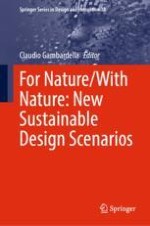2024 | OriginalPaper | Buchkapitel
Material Selection to Reinforce Circular Economy Trajectories in Industrial Companies: The O.S.M.O.S.I.S. Methodology
verfasst von : Flavia Papile, Barbara Del Curto
Erschienen in: For Nature/With Nature: New Sustainable Design Scenarios
Verlag: Springer Nature Switzerland
Aktivieren Sie unsere intelligente Suche, um passende Fachinhalte oder Patente zu finden.
Wählen Sie Textabschnitte aus um mit Künstlicher Intelligenz passenden Patente zu finden. powered by
Markieren Sie Textabschnitte, um KI-gestützt weitere passende Inhalte zu finden. powered by
